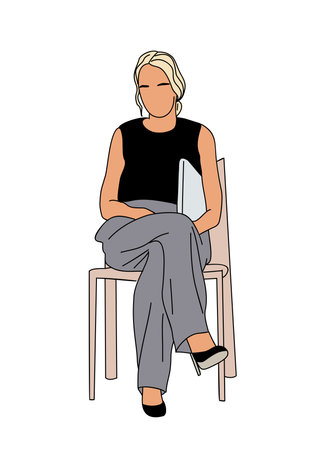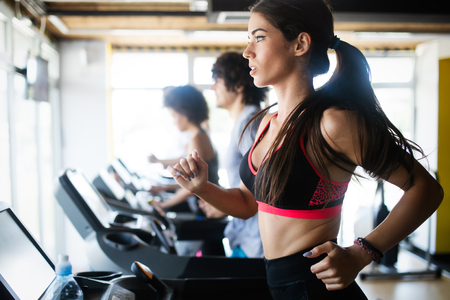Introduction to Seated Workouts
A warm welcome to the world of seated workouts—a gentle yet empowering approach to physical wellness, tailored for Brits who experience limited mobility. In the heart of British culture, where rainy days and historic architecture often shape our daily routines, many find themselves seeking ways to maintain health without the demands of standing or high-impact exercise. Seated workouts offer a practical and nurturing solution, drawing from both traditional British values of balance and community, as well as holistic philosophies found in ancient practices such as Traditional Chinese Medicine. By harmonising body and mind through mindful movement, these exercises support circulation, flexibility, and overall vitality while respecting individual limitations. Whether you are recovering from an injury, managing chronic conditions, or simply wishing to stay active in a safe manner, integrating seated exercises into your routine can foster resilience and wellbeing. In this article, we will explore how seated workouts blend time-honoured wisdom with modern wellness insights, helping you discover a renewed sense of energy and connection within the comfort of your own home.
2. Cultural Context: Mobility and Well-being in the UK
Within the UK, mobility challenges are shaped by a unique blend of environmental, social, and cultural factors. The British climate, with its frequent rain and colder temperatures, can make outdoor physical activity less accessible, especially for those with limited mobility. Urban and rural differences also play a role: while cities like London offer accessible public transport and community centres, many rural areas may lack such facilities, increasing isolation for people who are less mobile.
According to recent surveys, around one in five adults in the UK experiences some form of disability that affects their mobility. This prevalence is influenced by an ageing population, rising rates of chronic conditions such as arthritis, and post-injury recovery needs. The traditional British lifestyle often values independence and self-sufficiency, which can create additional emotional burdens for those needing assistance or adaptive resources.
The concept of well-being in Britain is increasingly holistic—embracing not just physical health but also mental resilience and social connection. Local health authorities and charities promote inclusivity through adapted exercise programs and seated workouts designed to meet various abilities. These efforts reflect both a practical response to physical limitations and a cultural shift towards greater empathy and integration.
| Key Challenge | Impact on Daily Life | Local Solutions |
|---|---|---|
| Poor weather conditions | Limits outdoor activities; increases sedentary time | Indoor seated workout classes; virtual exercise groups |
| Lack of accessible facilities (rural areas) | Isolation; fewer opportunities for group activity | Mobile wellness services; community outreach programs |
| Cultural emphasis on independence | Emotional stress; reluctance to seek help | Peer support groups; normalising adaptive exercise |
| Ageing population | Higher rates of limited mobility; risk of chronic illness | Customised exercise plans; NHS-backed wellness initiatives |
Holistic well-being—rooted in both modern practice and traditional wisdom—now resonates more strongly within British society. Seated workouts align with this philosophy by nurturing not only the body but also the mind and spirit, fostering harmony despite physical limitations. This reflects the emerging consensus that every individual deserves dignity, engagement, and vitality at every stage of life.

3. The Philosophy of Movement: A Mind-Body Perspective
In the heart of East Asian tradition, movement is never merely physical—it is a gentle dance of body and spirit. Seated workouts, especially for Brits with limited mobility, provide an opportunity to embrace this philosophy, blending it seamlessly with the renowned British resilience. Within Chinese medicine, the principle of “氣” (Qi) emphasises the importance of balanced energy flow, which can be nurtured even while seated. Through mindful movement and coordinated breathing, we can cultivate harmony between mind and body, regardless of our physical limitations. This philosophy resonates deeply with the British spirit: steadfastness in adversity and finding dignity in every action. Gentle exercises, such as mindful arm stretches or slow rotations, encourage us to listen inwardly—tuning into our breath and sensations, much like the meditative focus found in Tai Chi or Qigong. For those living in the UK’s often brisk climate, this practice offers warmth from within and a steadying calm that complements both body and mind. As we move gently yet intentionally, we foster not only flexibility and strength but also a sense of inner peace—a vital ingredient for overall wellness in daily British life.
4. Practical Seated Exercises for Everyday Brits
Incorporating practical seated exercises into daily routines is an excellent way for Brits with limited mobility to maintain physical wellness. These exercises are designed to be gentle yet effective, supporting flexibility, posture, and circulation, all while honouring each individual’s personal limits. Here’s a collection of easy-to-follow workouts, mindful of typical British habits—whether you’re enjoying a cuppa in your lounge or taking a moment at your desk.
Simple Seated Movements for Daily Practice
| Exercise | How To Do It | Benefits |
|---|---|---|
| Seated Shoulder Rolls | Sit tall, gently roll shoulders forward and backwards 10 times each direction. | Relieves tension, improves posture |
| Ankle Circles | Lifting one foot off the floor, rotate the ankle clockwise and anti-clockwise 10 times. Repeat with other foot. | Enhances circulation, reduces swelling |
| Knee Lifts | Sit upright, gently lift one knee towards the chest and lower. Alternate legs for 10 reps each. | Strengthens thighs, supports hip mobility |
| Seated Twist | Sit tall, place right hand on left knee, gently twist torso left. Hold for 5 breaths; switch sides. | Aids digestion, increases spinal flexibility |
| Wrist Stretches | Extend arms forward, flex and extend wrists gently 10 times. | Reduces stiffness from typing or knitting |
Integrating Mindfulness and Breathwork
Pair these movements with slow, mindful breathing to harmonise body and mind—an approach rooted in both traditional Chinese medicine and modern wellness philosophy. Inhale deeply as you begin each movement, exhale fully as you release. This not only calms the nervous system but also encourages better oxygen flow throughout the body.
Tips for Daily Consistency in British Life
- Tea Time Routine: Try a set of shoulder rolls or ankle circles while waiting for the kettle to boil.
- Desk Breaks: Use seated twists or wrist stretches during work-from-home or office breaks to reduce stiffness.
- Telly Evenings: Incorporate knee lifts or ankle circles during favourite programmes to keep joints supple.
- Pacing Yourself: Always listen to your body and adapt intensity according to comfort—honouring your unique constitution aligns with both British pragmatism and holistic health principles.
Cultivating Balance: A Holistic Note
Just as the British climate requires adaptability, so too does our approach to movement. By integrating these gentle seated exercises into daily life—with intention and moderation—you foster not only physical vitality but also emotional equilibrium, echoing the wisdom of “balance in all things” cherished in both Eastern healing traditions and British culture.
5. Adapting the Home Environment
Creating a safe and supportive space for seated workouts is essential, especially for those with limited mobility. In the British context, our homes often vary in size and style, but most can be adapted with simple steps and items commonly found across the UK. Begin by selecting a sturdy chair—ideally one without wheels and with arms—for stable support during exercises. Dining chairs are often an excellent choice, as they provide both comfort and security.
Remove any clutter or loose rugs around your workout area to prevent tripping or slipping. If you have wooden or laminate floors, consider placing a non-slip mat beneath your chair to ensure it stays in place throughout your routine. This is particularly important in older British homes where flooring can sometimes be uneven.
For added support, use cushions or rolled towels behind your lower back or under your thighs to maintain proper posture and comfort. Everyday household items such as tins of beans or bottles of water can serve as gentle hand weights for resistance exercises, offering a cost-effective way to enhance your seated workout without needing specialised equipment.
If you enjoy a calming atmosphere reminiscent of traditional British wellness practices, open a window to let in fresh air or place some potted herbs nearby, like lavender or rosemary, to create a soothing sensory environment that supports both body and mind. Soft lighting from a table lamp can also help foster relaxation during your session.
Most importantly, listen to your body’s signals—an approach rooted in holistic traditions. If any movement feels uncomfortable, modify it or take a break. Always keep a glass of water within reach to stay hydrated. By thoughtfully adapting your home using familiar British household items, you can enjoy the benefits of seated workouts safely and comfortably, promoting long-term physical well-being through mindful daily practice.
6. Building Consistency and Staying Motivated
Fostering Long-Term Commitment to Seated Wellness
Establishing a regular practice of seated workouts may seem challenging at first, but with gentle self-encouragement and community support, it can become an enjoyable part of daily life. Drawing inspiration from traditional Eastern philosophy, which values steady cultivation of health over time, the British approach to wellness can benefit greatly from consistency and mindful goal-setting.
Gentle Self-Encouragement
Begin by acknowledging your efforts, no matter how small. Celebrate each session as a positive step on your wellness journey. Rather than focusing on perfection or comparison, emphasise personal growth and progress. If you miss a day, offer yourself kindness—remember that wellbeing is a lifelong pursuit, much like tending to a garden in the English countryside.
Utilising NHS and Local Community Resources
The NHS offers various resources to support individuals with limited mobility, including physiotherapy guidance, seated exercise videos, and local activity groups. Many communities across the UK host chair-based classes or wellness meet-ups in village halls or community centres. Connecting with these groups not only provides expert advice but also creates social bonds that reinforce motivation and accountability. Don’t hesitate to reach out to your GP for tailored recommendations or referrals.
Thoughtful Goal-Setting
Set realistic and meaningful goals for your seated exercise routine. These could be as simple as increasing the number of repetitions per week or feeling more energised after each session. Consider keeping a journal to track improvements—this aligns with both modern British mindfulness practices and traditional holistic approaches. Remember, small consistent actions often lead to lasting benefits for body and mind.
Tips for Staying Engaged:
- Create a comfortable workout space at home, perhaps near a window or among cherished houseplants.
- Pair your exercises with uplifting British music or podcasts for added enjoyment.
- Invite friends or family members to join in—shared activity enhances connection and encouragement.
- Revisit your goals regularly and adjust them to reflect your changing needs and achievements.
By weaving together self-compassion, community support, and clear intentions, you’ll find that maintaining a seated workout routine becomes an empowering and sustainable part of your everyday life in the UK.
7. Conclusion: Embracing Wellness, the British Way
As we reach the end of our exploration into seated workouts for those with limited mobility, it’s important to reflect on what true wellness means—especially within a uniquely British context. Physical well-being is not only about movement; it is about harmonising body and mind, drawing inspiration from both traditional wisdom and our local heritage. In Britain, where the seasons shift gently and history is woven into daily life, embracing a balanced approach to health can be profoundly rewarding. Seated exercises offer more than just a practical way to move; they encourage us to tune into our bodies’ natural rhythms, much like the ancient Chinese principles of balance and flow. By honouring your personal limitations while making use of familiar comforts—whether it’s a sturdy armchair by the window or a favourite spot overlooking the garden—you foster an environment where healing and strength can flourish. Let this journey be a gentle reminder that wellness is not a destination but a continuous practice. Combine mindful movement with deep breathing, cherish moments of stillness as much as activity, and let your surroundings inspire you. As you nurture both body and spirit, you embody a distinctly British sense of resilience: quietly steadfast, deeply rooted, and always open to renewal.


